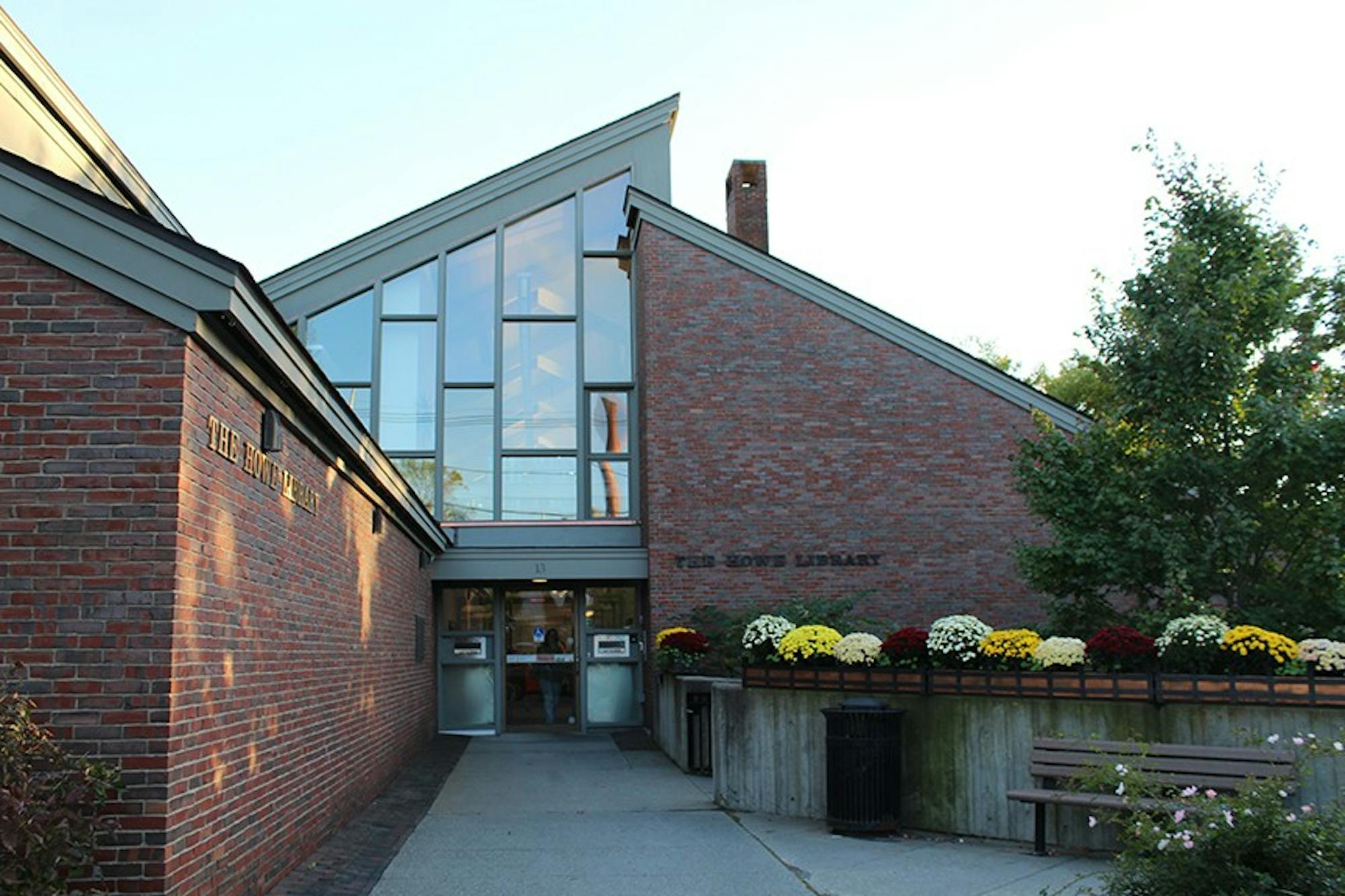For the past few years, two angular little boxes full of books have adorned the sidewalks of downtown Hanover. Located on East Wheelock Street in front of the Hopkins Center for the Arts and on Main Street in front of Town Hall and Molly’s Restaurant, these boxes, called Little Free Libraries, encourage passersby to take a book and leave another in its place. They were initially installed as a public outreach effort by the Howe Library in 2014, Howe librarian and volunteer coordinator Peter Appleton said.
Hoping to “make a splash,” as Appleton put it, the library began exploring ways to strengthen its connection to the Hanover community. After asking both staff members and Hanover residents for input, they settled on the idea of Little Free Libraries.
“Different libraries around the country have been doing it for a while,” Appleton said. “So we thought it’d be a good idea to try.”
Appleton explained that the Howe Library Corporation, the nonprofit group that operates the Howe Library along with the town of Hanover, underwrote the Little Free Libraries, which are now maintained and stocked three times a week. On Mondays, this job is done by a group from the Hanover Rotary Club; on Wednesdays and Fridays, the responsibility falls on a team of library volunteers, Appleton said.
Appleton said that the public reaction to the Little Free Libraries in Hanover has been “overwhelmingly positive” and he’s received encouraging feedback from everyone involved.
“It’s been something fun that we could put out there in the community,” he said.
The Little Free Libraries also play an important role in promoting literacy in Hanover, Appleton said. In addition, they allow the library to “engage with people we might not otherwise see” at their building on South Street.
Appleton said that while it’s impossible to keep an exact count of how many people are utilizing the Little Free Libraries, their popularity is indisputable.
“I would say that they get used pretty frequently,” he said, noting that the Howe often has to restock the boxes more than the scheduled three times per week.
Though Hanover was the first town in the Upper Valley to install Little Free Libraries, the idea has spread: In 2016, Lebanon Public Libraries erected four units in the town of Lebanon. Lebanon’s Little Free Libraries were first proposed by Dartmouth College librarian and Lebanon Public Libraries trustee Laura Barrett. While Barrett was enthusiastic, key members of the library’s leadership weren’t convinced, Lebanon Public Libraries director Sean Fleming said.
“I was initially a little resistant to putting them out there,” Fleming said.
Despite Fleming’s initial hesitation, widespread support for the initiative among the library’s staff members assured him that it was a good idea, he said. From there, construction of the Little Free Libraries became a community effort. Funding for the project came from the Lebanon Riverside Rotary, the library’s trustees and many individuals, organizations and businesses who donated time and materials to make the pint-sized libraries a reality.
“It was a project that really included a lot of people,” Fleming said. “When you do that, then you get people excited.”
Lebanon’s Little Free Libraries are stocked once a week by a volunteer, although Fleming says that the “take one, leave one” model works well enough that dwindling supplies are rarely a concern. And just like in Hanover, Fleming said the libraries have been received extremely well by the community. He said that in addition to helping Lebanon Public Libraries reach people, such as senior citizens, who are unable to make it to one of their two main locations — such as senior citizens — the Little Free Libraries make it possible for area residents to pick up books, even when the library itself is closed.
“It’s now a 24/7 service,” Fleming said.
Despite their popularity among Upper Valley residents, Little Free Libraries appear to be underutilized by Dartmouth students.
“Just yesterday I saw an older man using [a Little Free Library] by the [Hopkins Center for the Arts],” Emily Stehr ’21 said. “But not any students.”
Stehr attributed this lack of participation to the fact that Dartmouth has several full-scale libraries available for use at no cost and added that many of her peers aren’t aware of the Little Free Libraries.
“I don’t think many students know they exist,” she said, explaining that she didn’t know there were multiple locations in the area.
Despite this, Stehr thinks the Little Free Libraries are an asset to Hanover and Lebanon.
“They’re a great way to bring people together,” she said.
Appleton and Fleming both praised the virtues of the program and said that public reception has made the libraries well worth the hard work. None of the Hanover nor the Lebanon locations have had any issues with theft or vandalism. At the moment, neither library has plans to add more Little Free Library kiosks.
“We’re at capacity I think,” Fleming said. “But people can [exchange books] on their own, too.”




